-
 +20 +1
+20 +1CRISPR kills HIV and eats Zika 'like Pac-man'. Its next target? Cancer
HIV has no cure. It’s not quite the implacable scourge it was throughout the 1980s and 1990s, thanks to education, prophylactics, and drugs like PrEP. But still, no cure.The same ability, though, could be HIV’s undoing. All because of CRISPR. You know, CRIPSR: the gene-editing technique that got everyone really excited, then really sceptical, and now cautiously optimistic about curing a bunch of intractable diseases.
-
 +15 +1
+15 +1It’s Happening: US Scientists Reportedly Made a Genetically Modified Human Embryo
What now? Researchers in Portland, Oregon have used a powerful gene editing tool called CRISPR to create genetically modified human embryos, MIT Technology Review reported on Wednesday in an exclusive. This is the first confirmed case of the gene editing of human embryos in the US, and gets scientists closer to the ability to create genetically engineered humans.
-
 +18 +1
+18 +1CRISPR used to peer into human embryos' first days
Gene-edited human embryos have offered a glimpse into the earliest stages of development, while hinting at the role of a pivotal protein that guides embryo growth. The first-of-its-kind study stands in contrast to previous research that attempted to fix disease-causing mutations in human embryos, in the hope of eventually preventing genetic disorders. Whereas those studies raised concerns over potential ‘designer babies’, the latest paper describes basic research that aims to understand human embryo development and causes of miscarriage.
-
 +30 +1
+30 +1Why CRISPR-Edited Food May Be in Supermarkets Sooner Than You Think
In September, the U.S. Department of Agriculture gave the green light to a version of the plant Camelina sativa, an important oilseed crop that had been genetically engineered using CRISPR to produce enhanced omega-3 oil. What was interesting about this approval was that the USDA did not ask that the inventors of the plant endure the usual regulatory hoops required to sell biotech crops. The next month, a drought-tolerant soybean variety developed with CRISPR also got a quick pass from the USDA.
-
 +17 +1
+17 +1New gene therapy could cure a deadly disease that stops the heart from beating
Scientists have successfully tweaked the DNA in human heart cells to correct mutations that cause a deadly disease. If the gene-editing technique is proven safe, it could permanently cure children with a genetic disorder that leaves them wheelchair-bound by their early teens. The genetic disease targeted in this study is called Duchenne muscular dystrophy (DMD), a disorder that affects about one in 5,000 males and causes the progressive wasting away of skeletal and heart muscles.
-
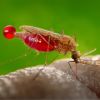 +18 +1
+18 +1CRISPR/Cas9 -mediated gene knockout of Anopheles gambiae FREP1 suppresses malaria parasite infection
Author summary The causative agent of malaria, Plasmodium, has to complete a complex infection cycle in the Anopheles gambiae mosquito vector in order to reach the salivary gland from where it can be transmitted to a human host. The parasite’s development in the mosquito relies on numerous host factors (agonists), and their inhibition or inactivation can thereby result in suppression of infection and consequently malaria transmission.
-
 +17 +1
+17 +1I Have A Rare Genetic Disease. CRISPR Might Fix It.
Right before I turned five, I went to the eye doctor for the first time. I even wrote about it in my kindergarten journal: “I am going to get galassis! I am so aixidad!” (I was a complicated speller.) At that appointment, I was diagnosed with vitelliform macular dystrophy, a degenerative eye disease also known as “Best disease.” Which doesn’t make a ton of sense because Best disease causes my eyesight to get worse and worse over time. It’s a lot like age-related macular degeneration, but it’s genetic, and my vision could deteriorate at any time, not just when I’m 80.
-
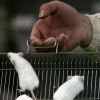 +20 +1
+20 +1CRISPR may not cause hundreds of rogue mutations after all
A scientific journal has retracted a controversial paper, published last year, that suggested the gene-editing tool CRISPR was a genome wrecking ball. In the retracted study, researchers sought to use CRISPR in mice to correct a mutation that causes blindness. They successfully fixed the genetic error but reported that CRISPR inadvertently made more than a thousand other changes—potentially harmful ones—in the animals’ DNA.
-
 +9 +1
+9 +1CRISPR successfully lowers cholesterol in mice
Biomedical engineers have used a CRISPR/Cas9 genetic engineering technique to turn off a gene that regulates cholesterol levels in adult mice, leading to reduced blood cholesterol levels and gene repression lasting for six months after a single treatment. This marks the first time researchers have delivered CRISPR/Cas9 repressors for targeted therapeutic gene silencing in adult animal models. The study appears in Nature Communications.
-
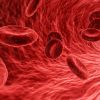 +3 +1
+3 +1A transplant of CRISPR-edited liver cells could replace lifelong injections for hemophilia B patients
A Salk Institute team transplanted liver cells into mouse models of hemophilia B, finding that the treatment restored their ability to form blood clots for a year. The hope is that this one-and-done treatment could replace the frequent injections of clotting factors that are currently used to treat the inherited blood disorder.
-
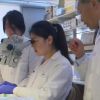 +15 +1
+15 +1CRISPR Could Eliminate Genetic Disease: UCSD Scientist
It's so small it can’t be seen with the naked eye, but research is showing that CRISPR (Clustered Regularly Interspaced Short Palindromic Repeats) is bringing sight to the blind.
-
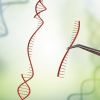 +12 +1
+12 +1CRISPR-edited rice plants increase grain yield by up to 31%
Scientists from China and the USA report the use of CRISPR/Cas9 to develop a variety of rice producing 25-31% more grain than traditional breeding methods.
-
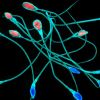 +12 +1
+12 +1First attempt to get CRISPR gene editing working in sperm
For the first time, biologists are trying to get the CRISPR gene-editing machinery directly into mature human sperm, rather than into fertilised embryos. The work is still at an early stage but could lead to a new way to prevent inherited diseases. Around half a dozen teams have used the CRISPR genome-editing method to alter the DNA of human embryos but it is still far from clear whether this approach is safe. One issue is that the embryo...
-
 +15 +1
+15 +1CRISPR Helps Fight Cancer... With Cancer
A study in mice has exploited the power and potential of the CRISPR gene editing technique to engineer cancer cells that hunt down and attack their tumor of origin. The research could lead to promising therapies for different types of cancer.
-
 +43 +1
+43 +1Crispr Can Speed Up Nature—and Change How We Grow Food
It took thousands of years for humans to breed a pea-sized fruit into a beautiful beefsteak tomato. Now, with gene editing, scientists can change everything.
-
 +13 +1
+13 +1Weird new fruits could hit aisles soon thanks to gene-editing
Smooth or hairy, pungent or tasteless, deep-hued or bright: new versions of old fruits could be hitting the produce aisles as plant experts embrace cutting-edge technology, scientists say. While researchers have previously produced plants with specific traits through traditional breeding techniques, experts say new technologies such as the gene-editing tool Crispr-Cas9 could be used to bring about changes far more rapidly and efficiently.
-
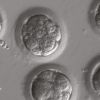 +11 +1
+11 +1Did CRISPR really fix a genetic mutation in these human embryos?
Researchers provide more evidence for their landmark claim that gene editing rid embryos of a disease mutation — but scientists are still arguing over the results.
-
 +18 +1
+18 +1CRISPR halts Duchenne muscular dystrophy progression in dogs
Scientists for the first time have used CRISPR gene editing to halt the progression of Duchenne muscular dystrophy (DMD) in a large mammal, according to a study by UT Southwestern that provides a strong indication that a lifesaving treatment may be in the pipeline. The research published in Science documents unprecedented improvement in the muscle fibers of dogs with DMD – the most common fatal genetic disease in children, caused by a mutation that inhibits the production of dystrophin, a protein critical for muscle function.
-
 +39 +1
+39 +1This wild plant could be the next strawberry
Strawberries, blueberries, blackberries, raspberries, and... groundcherries? A little-known fruit about the size of a marble could become agriculture's next big berry crop.
-
 +19 +1
+19 +1Stephen Hawking’s final papers predict the future will be super-rich superhumans vs. regular humans
A collection of the brilliant physicist’s final papers will be published tomorrow in a book called Brief Answers to the Big Questions, but the U.K.’s Sunday Times revealed some excerpts early. In the papers, Hawking mused on the future of everything from artificial intelligence to aliens. But one of the most unsettling things Hawking talks about is the inevitability of the super rich being able to afford to edit their genes and the genes of their offspring through technologies like CRISPR to make them stronger, more intelligent, and more resistant to disease.
Submit a link
Start a discussion




















